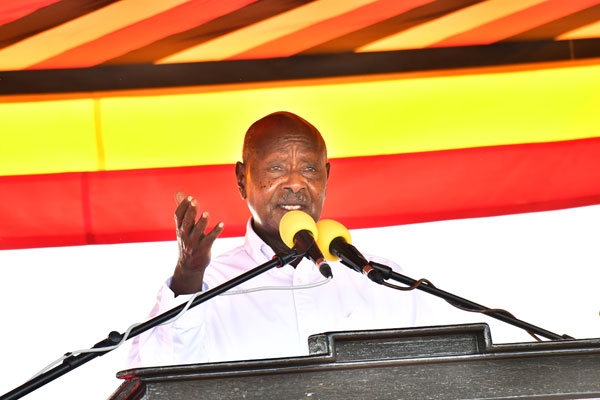By Abila Martha
In a decisive move, President Museveni has backed the implementation of the Electronic Fiscal Receipting and Invoicing Solution (EFRIS) by the Uganda Revenue Authority (URA), despite vocal concerns from traders.
During a meeting with traders at Kololo Independence grounds, Museveni dismissed calls for the suspension of the Value Added Tax (VAT) enforced by EFRIS, stating that traders lack valid reasons for their opposition.

EFRIS, a digital system introduced by URA in 2021, facilitates the seamless transfer of Value Added Tax (VAT) billing information between businesses and the tax authority. It aims to streamline tax administration and ensure accurate tax assessments based on authentic data.
However, traders have raised several issues with EFRIS, citing its complexity, high compliance costs, and the requirement for IT and accounting skills, which many lack.
In response to these concerns, Museveni directed URA to intensify sensitization efforts to familiarize traders with EFRIS, suggesting the use of smartphones as an alternative to expensive EFRIS machines.
His directive, however, prompted some traders to express disappointment, with some even leaving the meeting.
Despite the opposition, Museveni emphasized the importance of VAT, stating that it ultimately benefits consumers and is essential for funding government operations.

He also addressed broader tax concerns raised by traders, asserting that the government’s tax policy is deliberate and aimed at fostering economic growth and development.
While acknowledging the challenges faced by traders, Museveni stressed the importance of tax compliance, emphasizing that the issue is not whether taxes should be paid, but rather when they should be paid.
The President’s unwavering stance on EFRIS reflects his commitment to modernizing Uganda’s tax system and ensuring fiscal discipline for the country’s sustainable development.


